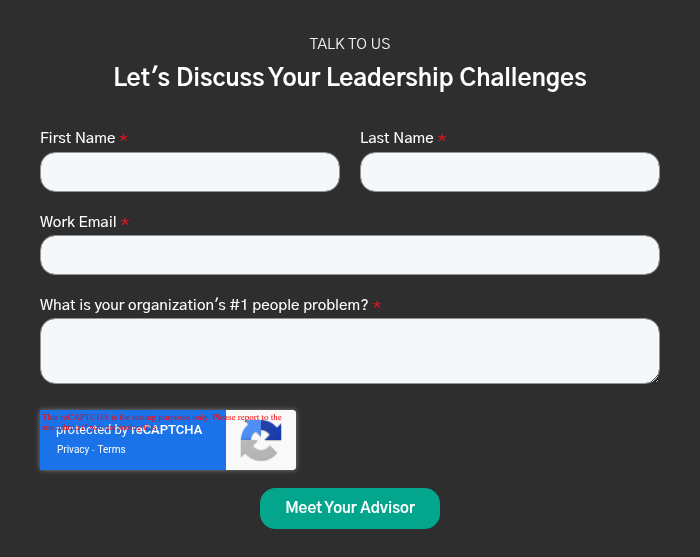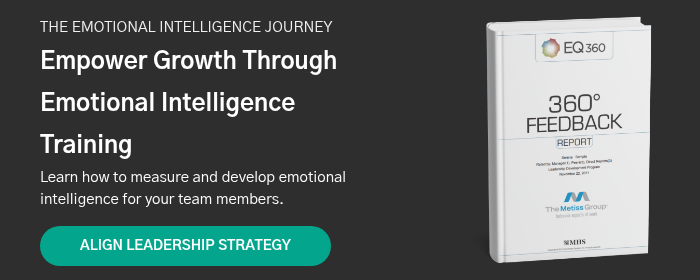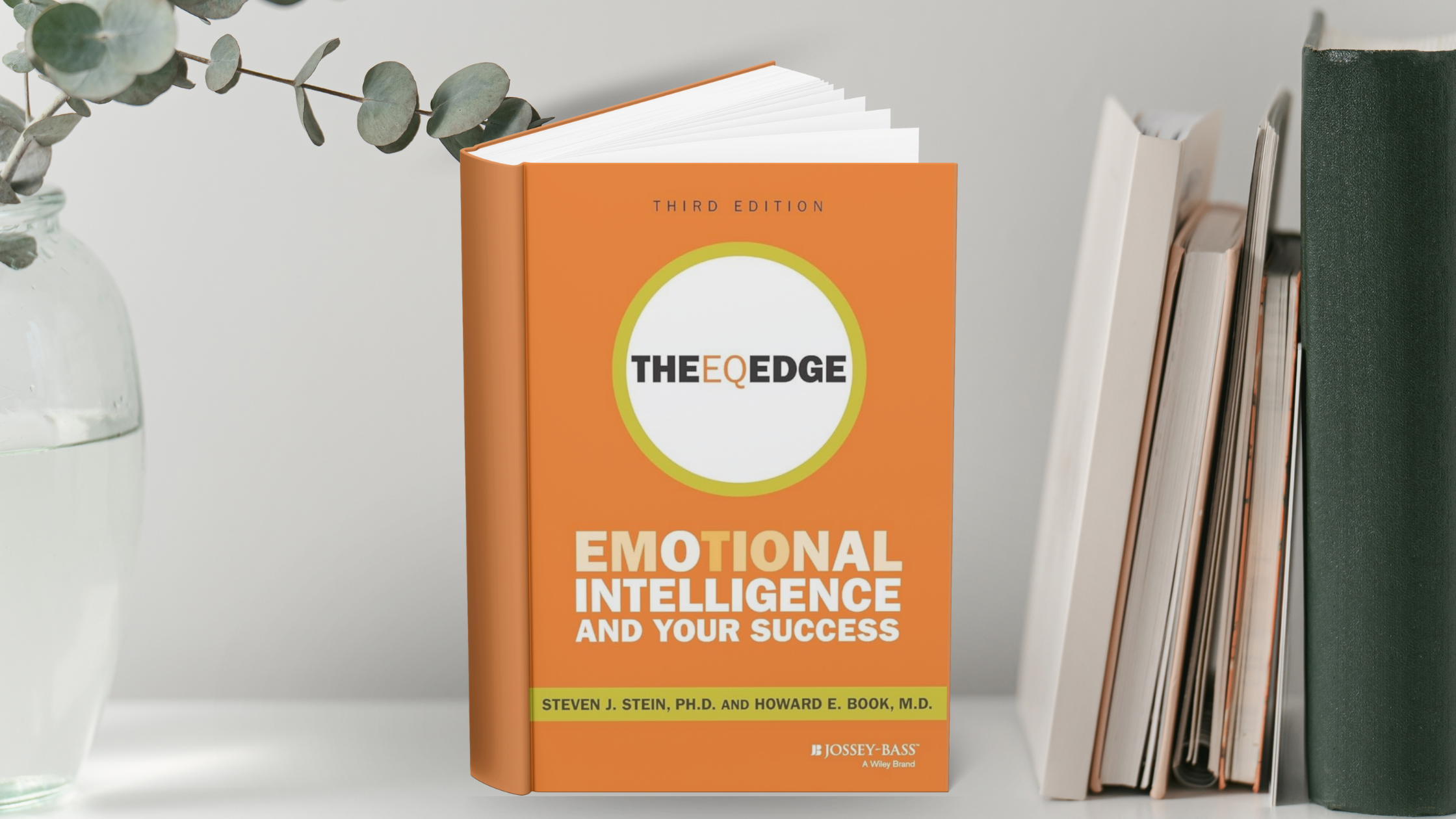
The workplace is entering a period of profound instability. Artificial intelligence is reshaping how people work and communicate. Employees are still navigating the emotional and cultural residue of the pandemic. Organizations remain caught between “back to office” and “work from home” cycles, creating confusion and fatigue. At the same time, the labor market is polarized: many roles remain unfilled while millions search for work, unable to match the skills employers need. Layer onto this the deep political divide that now seeps into the workplace, and leaders face an environment that tests not only intellect but empathy, composure, and awareness.
This is the era where emotional intelligence—or EQ—is no longer optional. It is foundational to leadership, collaboration, and performance. The ability to recognize, understand, and manage emotions—both one’s own and those of others—has become the stabilizing force in organizations contending with relentless change.
The Metiss Group has worked with hundreds of leadership teams across industries and has seen one pattern remain consistent: technical skill gets people hired, but emotional intelligence determines whether teams thrive or fracture. IQ may open the door, yet EQ keeps the organization functioning under pressure.
This article explores why EQ is so critical in today’s context, how it intersects with AI and workplace transformation, and why measuring it through a structured 360° assessment can provide the clarity leaders need to adapt and grow.
In this article, you will learn:
- Why Emotional Intelligence Is the Defining Skill of the Modern Workplace
- How AI and Technology Heighten the Need for Emotional Awareness
- The Emotional Fallout of the Post-COVID Workplace
- How Divides in Society Are Affecting Team Cohesion
- Why Measuring EQ Through 360° Feedback Creates Real Development
Why Emotional Intelligence Is the Defining Skill of the Modern Workplace
How AI and Technology Heighten the Need for Emotional Awareness
The Emotional Fallout of the Post-COVID Workplace
How Divides in Society Are Affecting Team Cohesion
Why Measuring EQ Through 360° Feedback Creates Real Development
Why Emotional Intelligence Is the Defining Skill of the Modern Workplace
The modern workplace is not defined by what people do, but how they interact. Technical expertise is abundant, yet emotional competence is scarce. Leaders are now asked to balance accountability with empathy, drive with understanding, and speed with care. The volatility of the current environment demands not only strategic intelligence but also emotional regulation and self-awareness.
Emotional intelligence has become the primary differentiator between leaders who sustain performance and those who collapse under tension. Research from the World Economic Forum identifies emotional intelligence as one of the top ten skills for future success, yet many organizations continue to undervalue it in their hiring and leadership development programs. The gap between technical mastery and emotional maturity is widening, and organizations are paying the price through disengagement, conflict, and attrition.
How AI and Technology Heighten the Need for Emotional Awareness
The rise of artificial intelligence is creating both promise and pressure. While AI automates decision-making and data analysis, it cannot replicate the emotional nuance of human interaction. Leaders who rely too heavily on technology risk eroding the trust and connection that underpin team performance.
As AI tools handle more analytical work, the human differentiator becomes emotional intelligence. The leaders who will thrive in this next phase are those who can interpret emotions, build psychological safety, and foster collaboration across digital and human boundaries. Managing AI-driven change requires emotional steadiness: the ability to communicate uncertainty with transparency and to manage fear and resistance within teams.
Technology amplifies both clarity and confusion. Emotional intelligence provides the filter through which leaders discern when to rely on data and when to rely on human judgment.
The Emotional Fallout of the Post-COVID Workplace
The pandemic may have officially ended, but its psychological and cultural effects persist. Teams continue to struggle with hybrid models, shifting expectations, and uneven reintegration. Many employees experienced isolation, burnout, and loss during the pandemic, and these emotions did not disappear when offices reopened.
The “back to office” debate has become a proxy for deeper emotional and cultural issues. Some employees crave connection; others fear loss of flexibility. Organizations oscillate between policies, creating uncertainty that undermines morale. Emotional intelligence is the stabilizing factor in this turbulence. Leaders who listen, empathize, and communicate with authenticity create environments where people feel seen and supported even amid change.
EQ-driven leadership helps teams process the lingering stress of the pandemic and channel it toward renewed purpose. Without it, organizations risk fostering resentment and disengagement that quietly erode performance.

How Divides in Society Are Affecting Team Cohesion
The current political and social landscape is more divided than at any point in recent history, and those divisions are increasingly visible inside organizations. Employees bring their values, frustrations, and fears to work, creating potential for tension and misunderstanding.
Leaders cannot eliminate these differences, but they can manage them with emotional intelligence. Empathy, respect, and perspective-taking become essential leadership skills. Teams must learn to engage in constructive disagreement rather than avoidance or hostility. EQ allows leaders to detect emotional cues, de-escalate conflict, and create psychological safety amid ideological diversity.
In a divided environment, the emotionally intelligent leader is not neutral; they are grounded. They create space for dialogue without letting disagreement derail performance.
Why Measuring EQ Through 360° Feedback Creates Real Development
Emotional intelligence begins with self-awareness, yet most individuals overestimate their own. Blind spots—those gaps between how we see ourselves and how others experience us—are often the root cause of conflict, poor communication, and leadership missteps. Measuring EQ through a 360° assessment provides a powerful mirror for self-discovery.
Unlike self-assessments that capture only personal perception, a 360° instrument gathers observations from family members, bosses, peers, and direct reports. The feedback illuminates behavioral patterns, strengths, and growth areas across contexts. It reveals how emotions are managed under pressure, how empathy is expressed in leadership, and how effectively one adapts to others’ needs.
The insight gained from this process is invaluable. It translates abstract qualities like empathy, composure, and self-regulation into measurable competencies that can be intentionally developed. For leadership teams, it creates a shared language for discussing emotional dynamics without judgment.
Organizations that integrate 360° EQ assessments into their leadership development programs see measurable improvements in communication, collaboration, and performance. Emotional intelligence is not a soft skill; it is a strategic capability that shapes culture, decision-making, and resilience.
Takeaways
The modern workplace faces simultaneous disruptions: technological transformation, cultural fatigue, political division, and structural imbalance in the labor market. Each of these challenges requires emotional intelligence to navigate effectively.
AI can analyze data but cannot read a room. Policies can change behavior but cannot restore trust. Only emotionally intelligent leadership can sustain engagement, connection, and performance through uncertainty.
Developing EQ begins with awareness, and awareness begins with feedback. A 360° assessment provides the most reliable path toward understanding how one’s behavior affects others. With that insight, leaders can grow beyond reaction and lead with intention—something no algorithm can replicate.
The organizations that invest in emotional intelligence today are building not just more capable teams but more human ones. In a time when everything else feels uncertain, that may be the most strategic decision of all.























